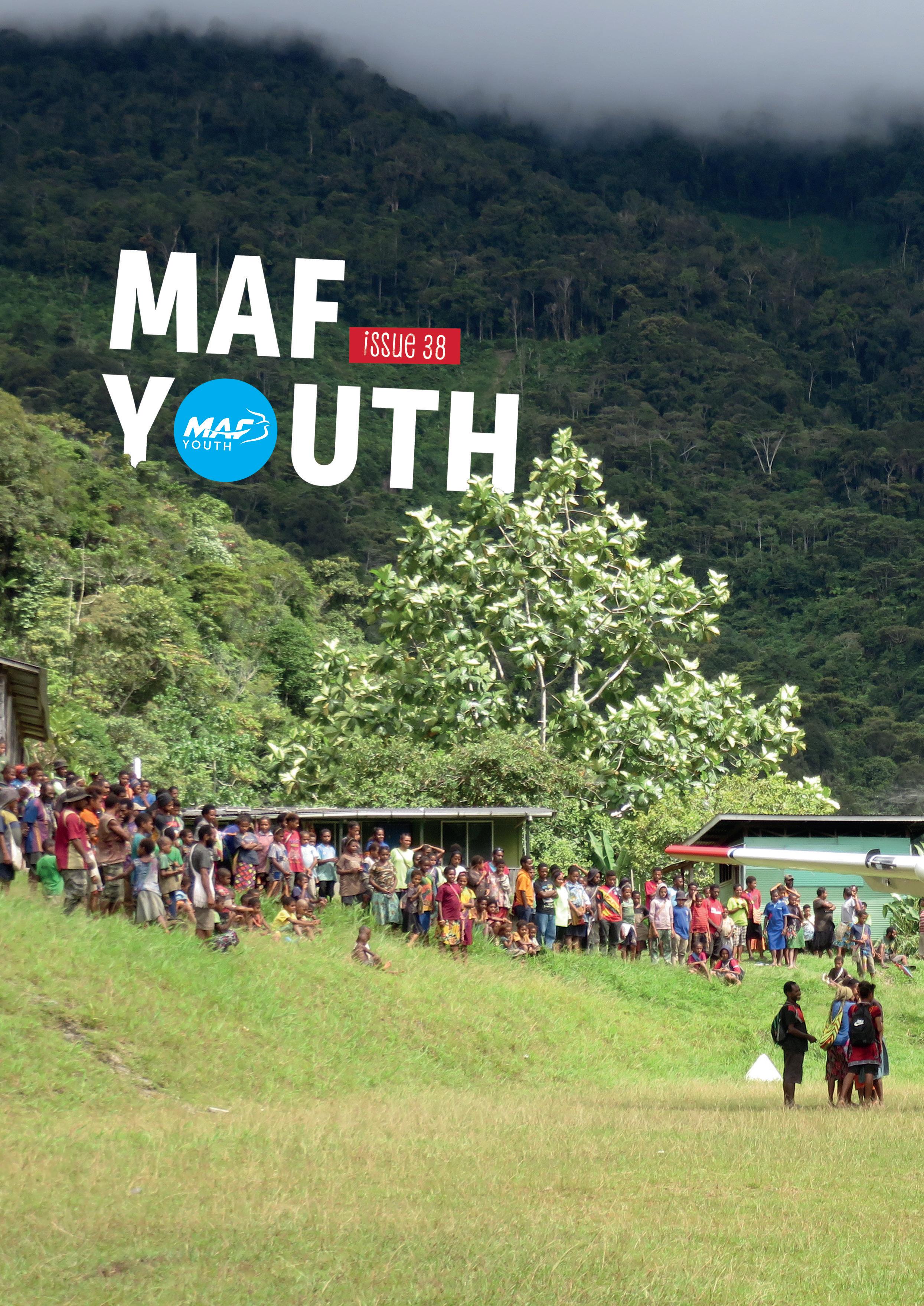2 Join CoPilot!

4 Win a sweetie bundle!
14 MAF's fluffiest flyers

2 Join CoPilot!

4 Win a sweetie bundle!
14 MAF's fluffiest flyers
After nearly 40 issues, we’re embarking on a new journey, and we hope you’ll join us!
This is the last MAF Youth magazine as we shift our focus to an exciting new project.
We’re changing our name and rebranding to MAF Co-Pilot, and we want you to join our community of young adults who are passionate about global change and shaping the future through aviation and technology. Join us and become a global changemaker!
We aim to equip and empower the next generation through:
Immersive trips and events: Experience firsthand why MAF is needed and explore career/ training opportunities with us.
Prayer: More opportunities to join us in praying for our broken world.

Volunteering: Use your platform and skills to inspire others about MAF’s lifesaving work.
YOU can help keep our planes in the air!









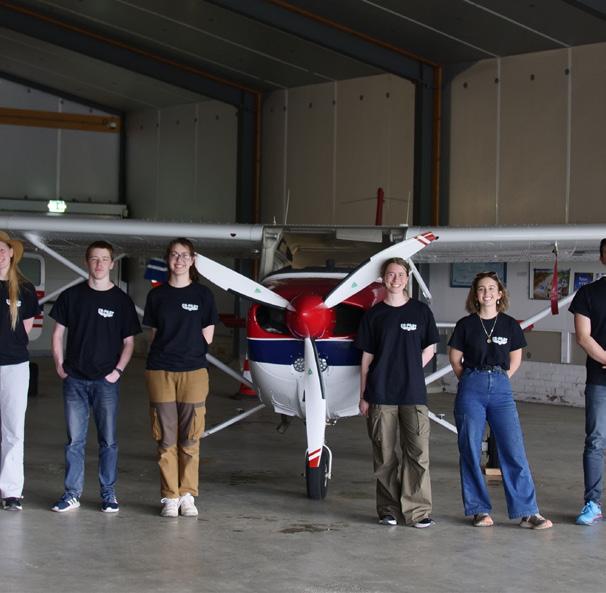

You are invited to the FREE launch event of MAF Co-Pilot
Saturday 12 October
YWAM Harpenden, 10am-4pm
Mission Aviation Fellowship’s new initiative for 16-25 year olds
Packed full of worship, special guests, immersive activities, food… and a whole lot of celebrating; come and be a part of the adventure!
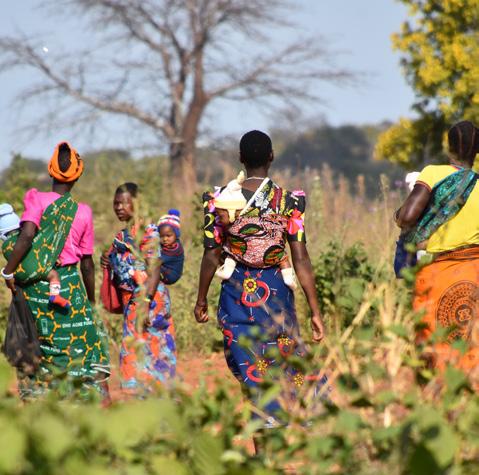
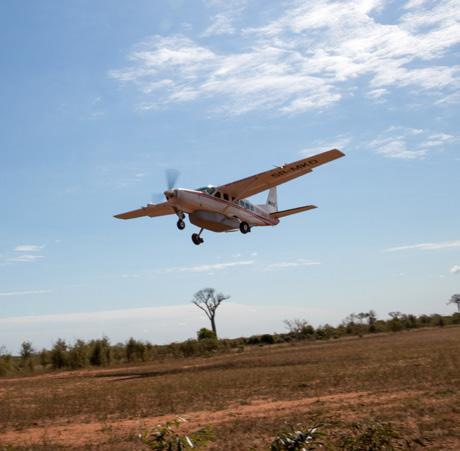
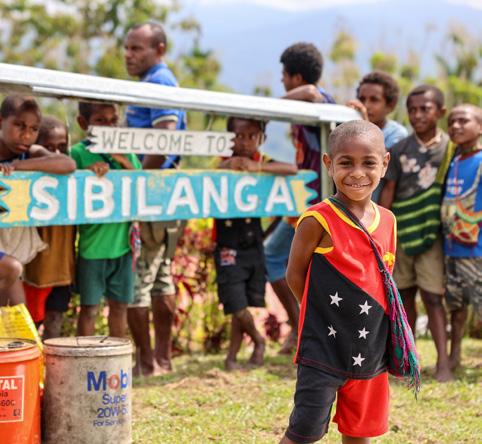


Scan the QR code to find out the latest updates about MAF Co-Pilot and to get signed up to the event, or head to www.maf-uk.org/co-pilot
Come and find out how YOU can Co-Pilot with what God is doing all across the world.
THIS ONE'S DEFINITELY THE HARDEST COMPETITION WE'VE EVER RUN, YOU READY? ALL YOU HAVE TO DO IS.... follow our

First 20 new followers win a sweetie bundle!





Jacqueline Mwende
If you keep up with the news, you’ve probably seen how climate change is hitting hard — disrupting lives, homes and survival worldwide. The countries MAF supports are getting even more isolated as extreme weather wreaks havoc.
More than 168,000 acres of crops have been destroyed by recent unprecedented floods, according to Kenya’s government.
In the wake of Kenya’s devastating floods from March to May, which saw historically high water levels turn northern Kenya’s Chalbi Desert into mud for the first time, lives of farmers and their families have been turned upside down.
Rural roads have been washed away or turned into dangerous mudslides. As a result, cut-off communities can only be reached by plane.
In Pakase, Shompole — a community near the Tanzania border — more than 350 families saw their homes, livelihoods and community buildings washed away by a swollen river.
Thousands of livestock are dead. Even elephants have drowned.
Letoi, who witnessed the destruction of her own home and has benefitted from aid delivered by MAF, shudders, ‘We were still asleep at 9am on Monday when we heard the ominous sound of rushing water approaching our home. When I looked outside, I saw a powerful torrent moving towards us. I managed to grab my children and move to higher ground.’
MAF has been partnering with World Relief, an NGO which has been supplying water purification tablets, jerry cans for storing clean drinking water, mosquito nets and feminine hygiene products to those affected by the flooding.








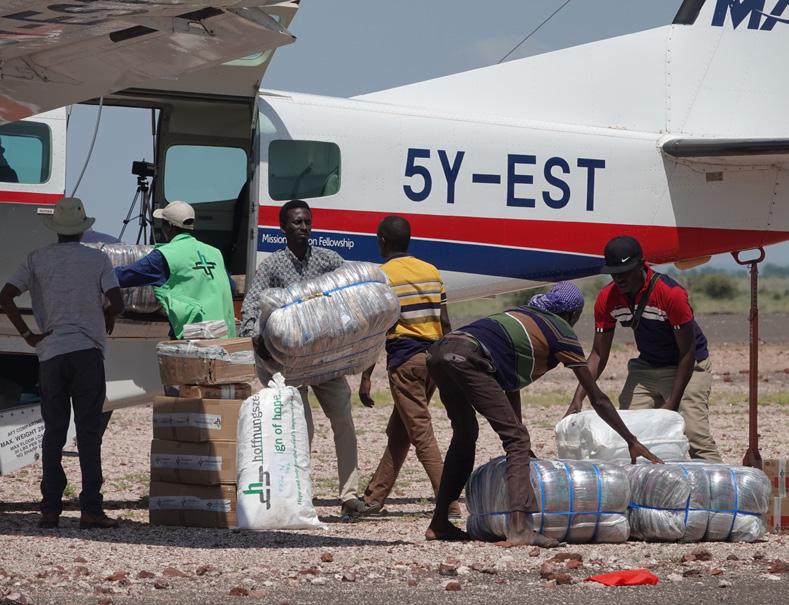
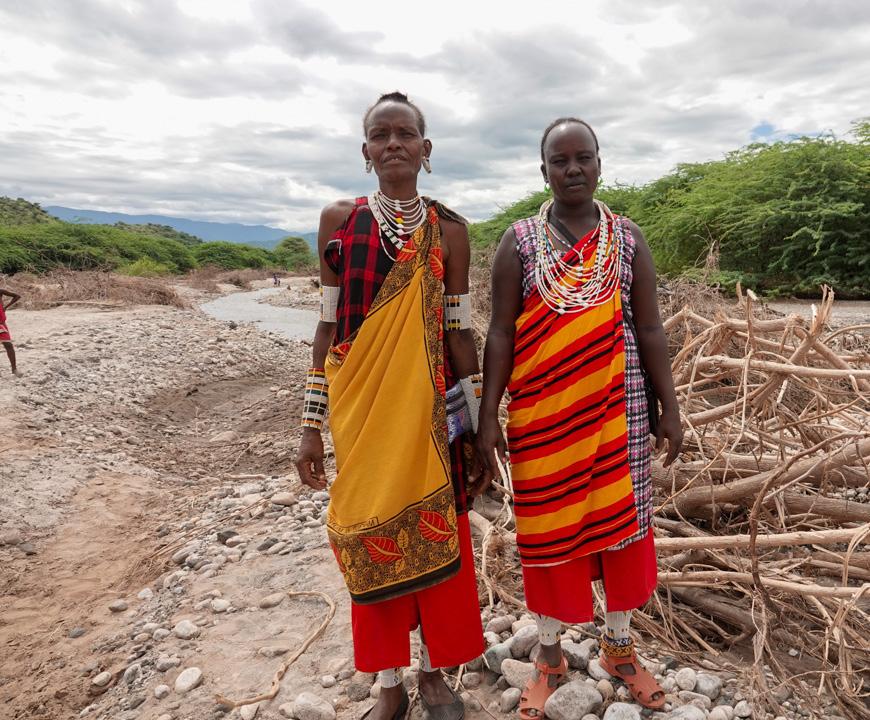



MAF’s flight from the capital Nairobi to Shompole Airstrip has given the team access to some of the worst-hit areas.
With many roads washed away, logistics and essential deliveries are made infinitely easier with MAF. World Relief Kenya Country Director Oliver Otsimi says that, were it not for MAF’s help, ‘We feel even more isolated.’
On the other side of the country, in the far north near the Ethiopian border, other communities have also been devastated — the flooding leaving hungry, homeless farming families at risk of preventable diseases from contaminated water.
So that those affected by the disaster could receive food supplements, sleeping mats, blankets, mosquito nets, soap, jerry cans and medical supplies, MAF partnered with Food for the Hungry and Sign of Hope, transporting 10 aid workers and delivering more than 1,300kg. of essential supplies over 2 days.
With substandard roads either washed away or caked in mud, and strips of usually dry wilderness now underwater, Kenya’s remote southern and northern farming communities could be cut off for months.
Kenyan MAF pilot Amos Simiu — who regularly flies over northern Kenya’s Chalbi Desert — says he’s never seen anything like it.
‘The whole time I’ve been flying here,’ Amos explains, ‘I’ve never seen water on the desert. I’ve never seen water here before, but right now it is a lake as far as you can see.’
Rio Grande do Sul — Brazil’s most southerly state — is also experiencing its worst ever climate change catastrophe due to unprecedented rainfall since April. In response, MAF affiliate Asas de Socorro (ADS) has been delivering life-saving supplies, rescuing and medevacking the afflicted, and flying in health professionals to ease the suffering.
By May, low-lying areas of Porto Alegre — Rio Grande do Sul’s capital city — were completely submerged.

A new city record was set when the water rose to 5.33 metres, flooding more than 300,000 homes and impacting 45,000 businesses.
A total of 600,000 people are now homeless and over a million are without electricity and drinking water. Communications are badly affected. At least 175 people are dead.
Roads have turned into rivers and stadiums have turned into lakes. Porto Alegre’s Salgado Filho International Airport is expected to remain closed until the end of the year due to damage caused by two months of rain falling in just three days.
Reconstruction of the state is likely to cost around US $4 billion. Authorities are calling it the worst climate disaster in southern Brazil.
Pray for the rebuilding of the countless lives suffering from the devastation caused by flooding.
Pray for the safety of those trying to respond to the flooding, and for God’s provision as MAF seeks to support the emergency relief efforts.
Listen out for the next episode of the Flying For Life podcast, which explores how MAF responds to climate change disasters like the floods in Brazil and drought and flooding in Kenya.

About 75% of Chad’s population live in rural areas
life expectancy
51 years (men)
54 years (women)
The MAF team in Chad as they work in very challenging conditions, and for the extreme weather patterns due to climate change that have a massive impact upon crops and farming.




Music can have a really powerful effect on the mind and body and can trigger a massive array of emotions!
Brass for Africa is an award-winning charity that recognises that music is a powerful tool to transform lives.
This is particularly true of the lives of the young people with whom they work — many living in extremely vulnerable situations. Some have been orphaned. Some have become homeless. Others, despite their youth, have become mothers.
Because youth unemployment in a number of African countries is high and a large percentage of children receive no education, the need for transferable skills is critical.
You may not realise this, but a number of these skills can be attained through the discipline of learning music. Brass for Africa’s personnel recognise this and teach eight key life skills that are highly valuable:
Self-confidence / Resilience / Leadership skills / Problem-solving / Grit and perseverance / Concentration / Teamwork / Communication.
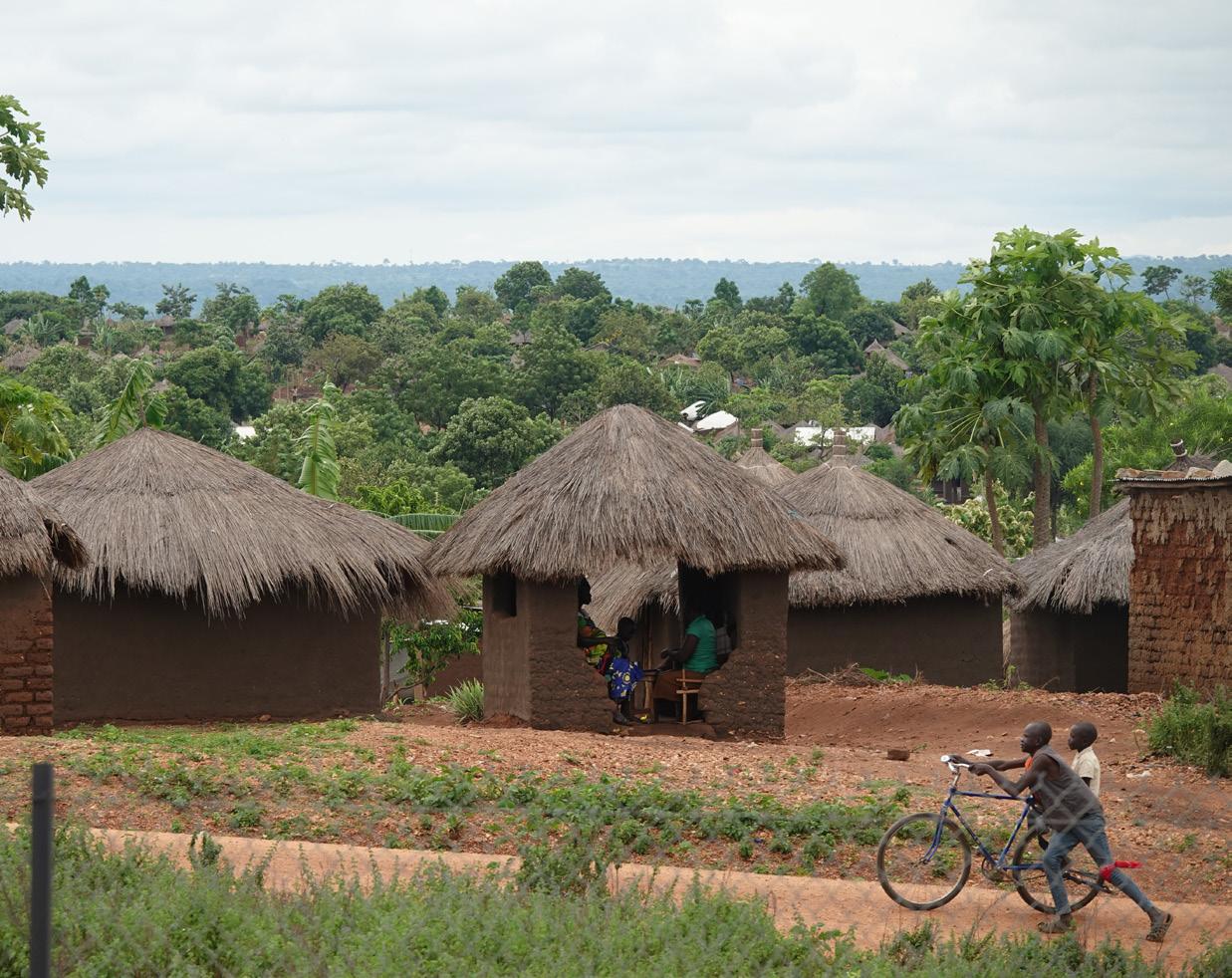
The NGO started when Jim Trott, a pilot — which obviously we love! — flew 30 worn out and unloved brass instruments to an orphanage in Uganda. What started as a way to save the instruments from the scrapheap turned into a journey of hope and transformation!
Brass for Africa currently delivers Music and Life Skills education to more than 1,500 disadvantaged children and young people across Uganda, Rwanda and Liberia.
Their staff regularly fly with MAF to create brighter futures for young people — bringing hope to traumatised refugees in Bidibidi, northern Uganda.
Twice a week, their music programmes bring joy to hundreds of people who are suffering from the horrors of war. The initiative also provides those living in the world’s second largest refugee settlement with opportunities to thrive.
Created in 2016, the Bidibidi settlement is — according to the UN — ‘home’ to at least 270,000 mostly South Sudanese refugees who fled the country’s six-year civil war, which erupted in 2013.
The war, followed by ongoing violence compounded by climate change and food insecurity, has forced more than 2.2 million people to flee from South Sudan into neighbouring countries.
Now, a decade after the conflict began, hundreds of thousands of people are still living in limbo in Bidibidi. They are too afraid to return home, but are struggling with limited resources and the trauma caused by the conflict.
Many are haunted by graphic memories of the murders they witnessed — experiences that changed their lives forever. A large number suffer from depression.
Before Brass for Africa’s arrival, there was hostility between the host community and the refugees. Some locals refused to share their wells, firewood and land.
In 2021, more than 160 people committed suicide. In 2023, the figure dropped to 40.
The reduction in fatalities is mainly attributed to programmes like Music for Healthcare Inclusion, where refugees are taught how to play brass instruments for relaxation. The valuable skills they learn can also help them to earn a living.
Playing in a band fosters community and a sense of belonging

Playing in a band also fosters community and hope. Molly Nabwami, Brass for Africa’s Health Officer, says she’s pleased with the results, noting, ‘We are happy that suicide cases are significantly dropping since we started our interventions.
‘Last year, there were 40 cases. This is very good progress because, in previous years, the number of cases were much higher.’

Before Brass for Africa’s arrival, there was hostility between the host community and the refugees. Some locals refused to share their wells, firewood and land.
In order to resolve this worrying situation, the NGO invited local Ugandans to also join the music classes.
Now, according to frequent MAF flyer and Brass for Africa Programmes Manager Ronald Kabuye, the refugees and locals enjoy a more peaceful coexistence.
‘When we first came here,’ Ronald explains, ‘there was a serious lack of social cohesion. Life for refugees only meant sleeping and waking up. Now we’ve brought music, we’re achieving a vibrant community. Our lessons aren’t for individuals – we teach them as a group.
‘Another problem refugees face when they leave their home country is their loss of culture. This project helps them to connect and cherish their culture. They can have their music and keep their culture while they’re away from their home country.’
Ronald speaks from experience. As a boy, he too was orphaned by war, but was enrolled in a Brass for Africa programme. He eventually became a music teacher before working his way up to becoming the NGO’s Programmes Manager.
MAF saves time and transforms work
MAF flies the team from Kajjansi Airfield, near the capital Kampala, to Arua four times a week.
‘Before MAF came,’ Ronald concludes, ‘it would mean an entire day of road travel, plus another day to recover. 12-hour journeys sometimes became 15 hours or more due to bad roads.
‘With MAF, we can travel just half a day, then rest. This ensures that more time is spent on monitoring the projects. MAF can also arrange short-term visits to the project in case of emergency.’
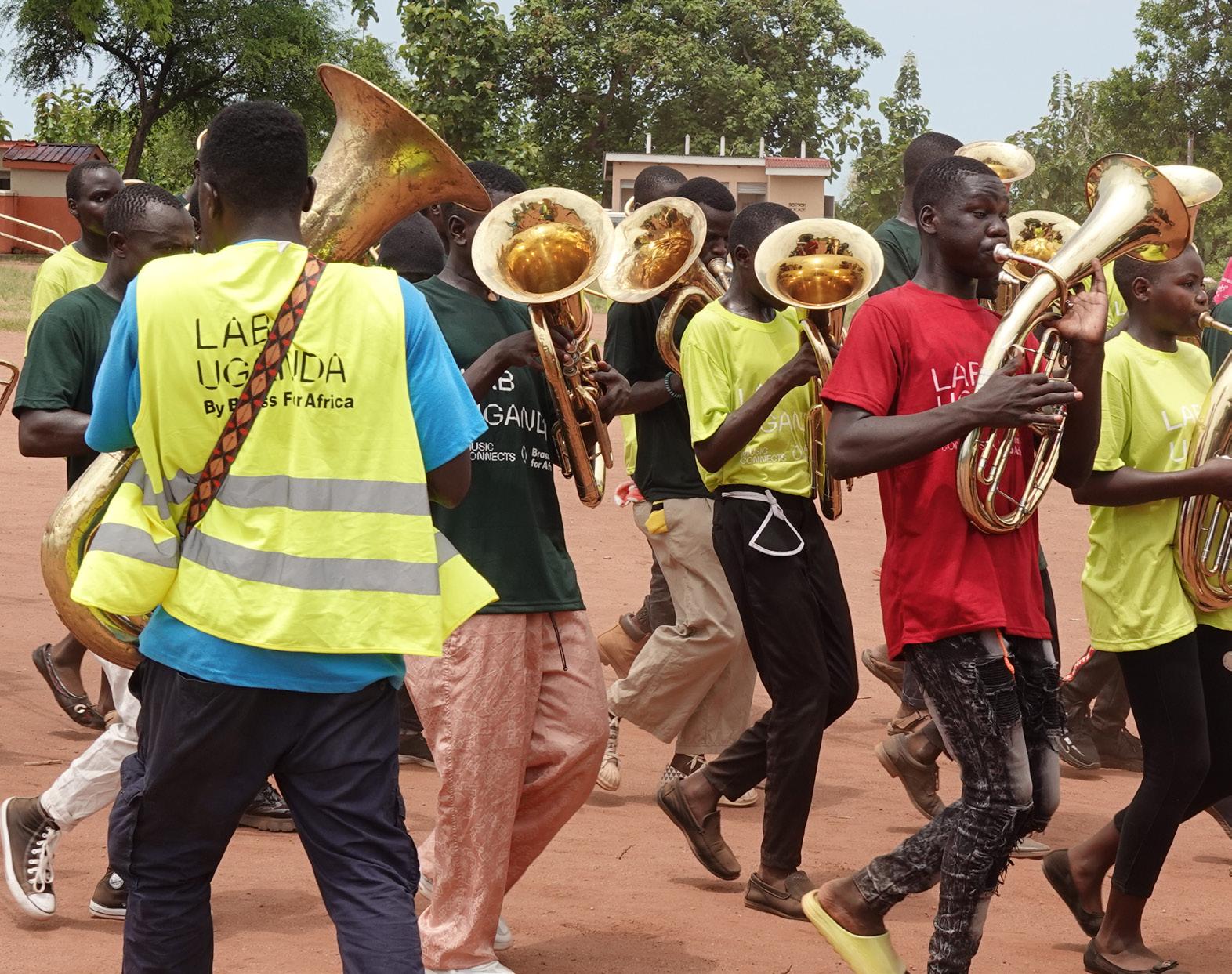
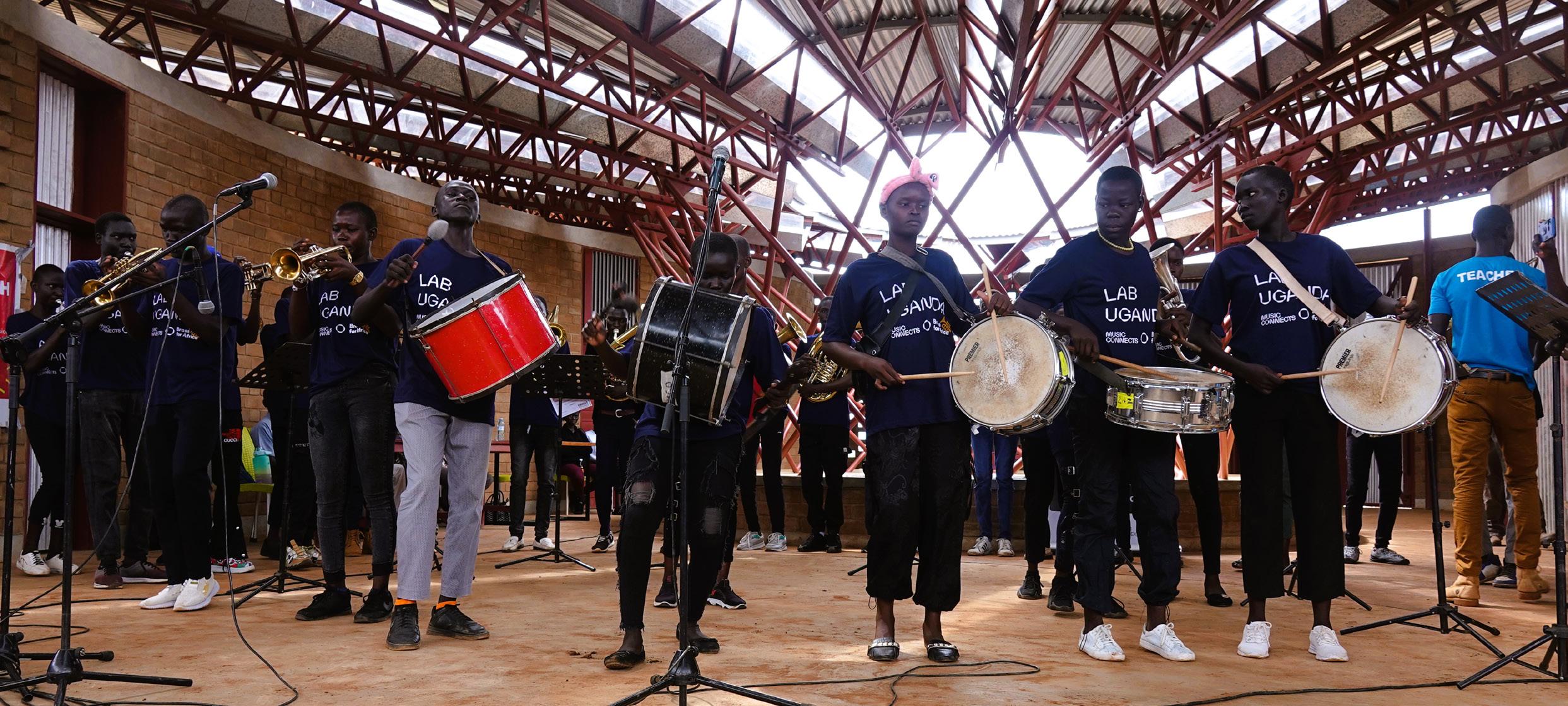

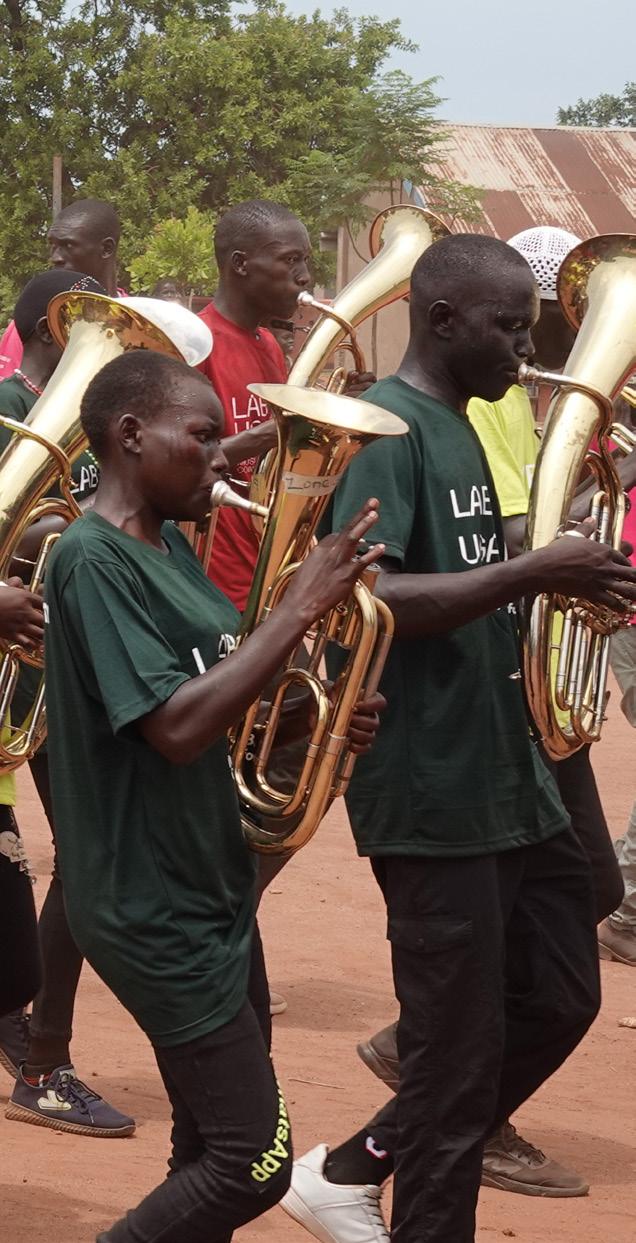
We also had a blast with you guys this summer at Magnitude, DTI and Satellites festivals as well as our trip to MATC with MAF Netherlands!


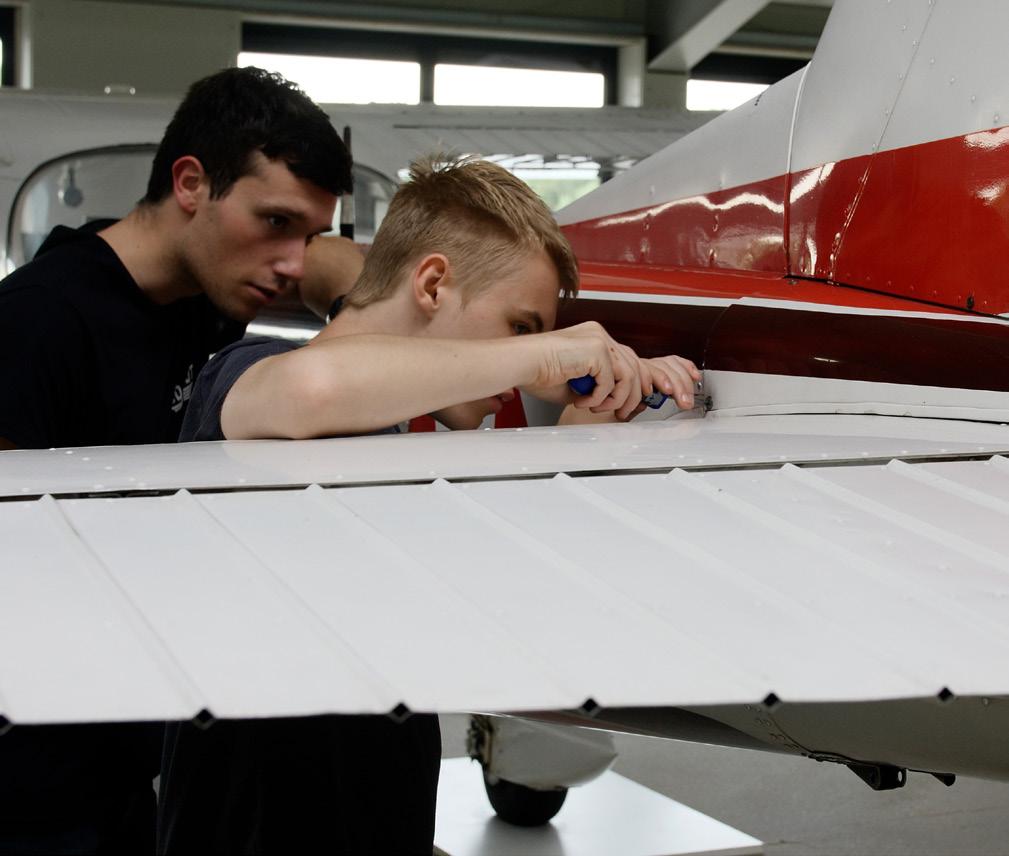
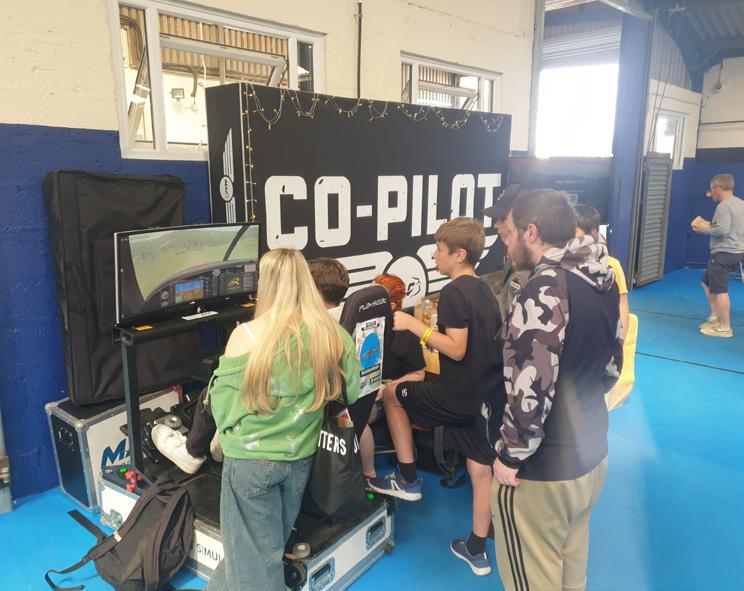
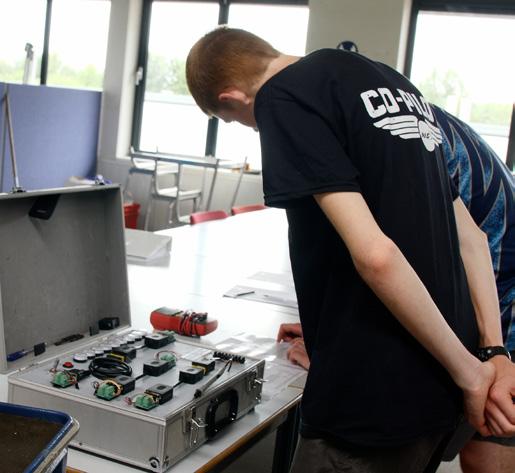
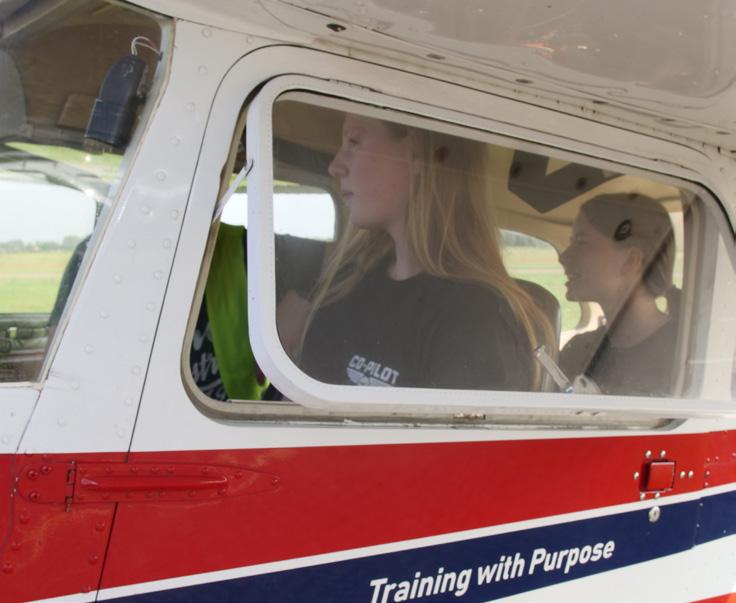

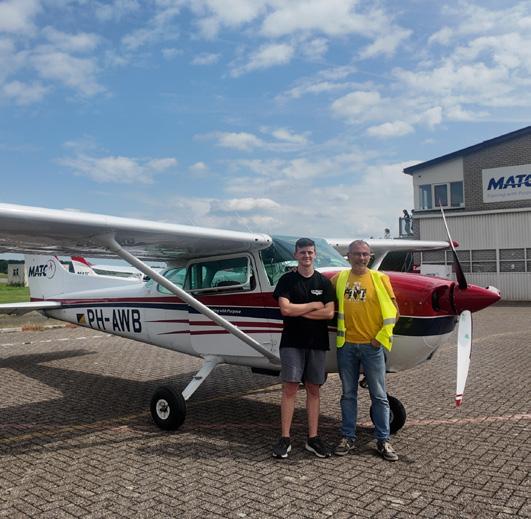
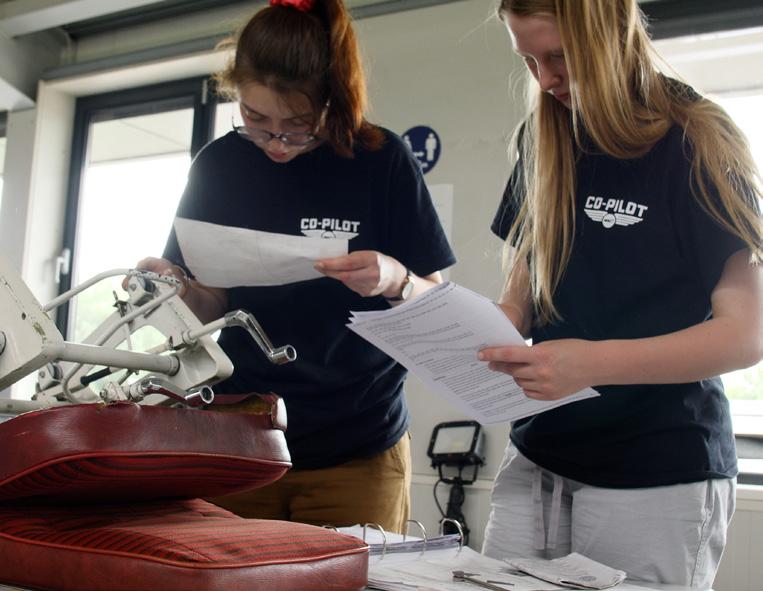
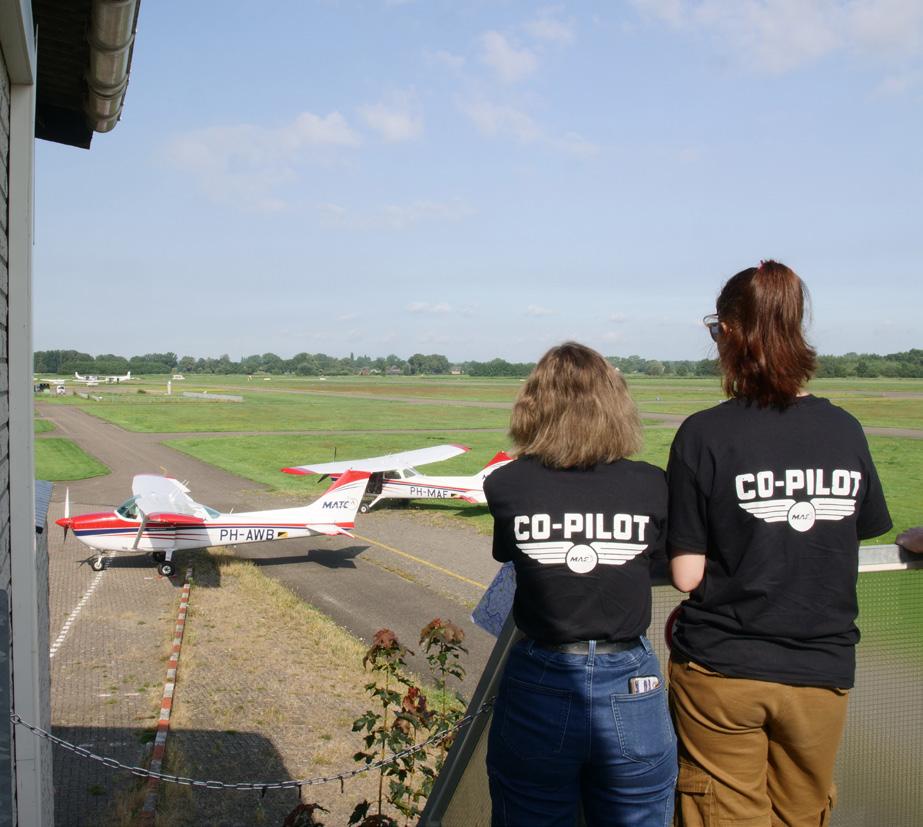
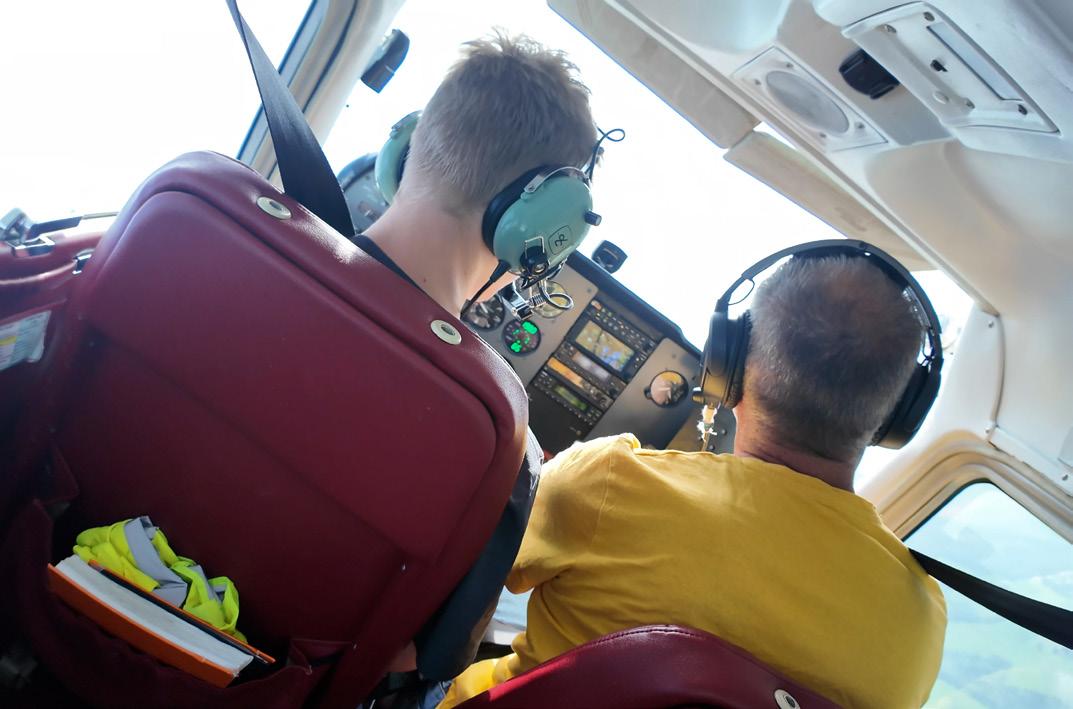

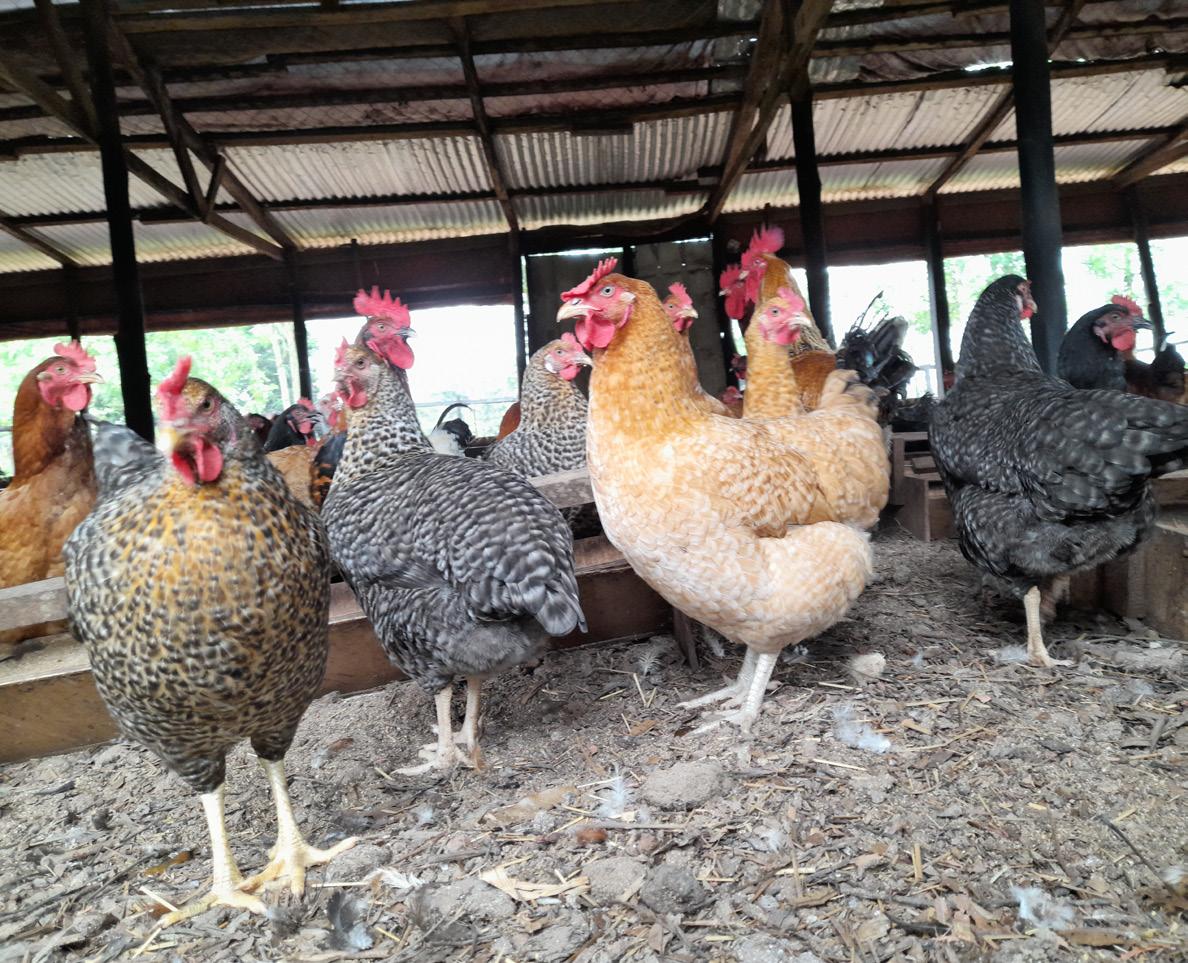
South Sudan

Importing and rearing chickens in the remotest regions MAF reaches is a basic yet life-saving business
Doing so helps rural families fight malnutrition and poverty by enabling them to own and sell chickens themselves.
If you live on £1.50 a day, owning poultry is a far better way to provide for your family than most other development initiatives.
Chickens are cheap to buy and easy to look after, enabling many people to care for them at home. Protein rich eggs provide a nutritious source of food, while breeding the hens gives their owners valuable extra income.
Transporting the chicks by air rather than land significantly increases their chances of survival. So, thanks to MAF planes, each chick is far more likely to be able to save and enrich lives in the most isolated areas.
MAF pilots delivered 600 baby chicks to a missionary in South Sudan who combines sharing the Gospel with farming skills.
After the unusual cargo had been collected at Yambio Airfield in South Sudan, the boxes containing the tiny passengers ended up on their second journey of the day, having flown all the way from Uganda with MAF pilot Dave.
MAF South Sudan pilot Jono then flew the 600 baby chickens to Rev Park, a missionary from South Korea who has worked in Maridi for the past 10 years. Rev Park combines his love of telling people about Jesus with a ministry that involves raising chickens so they can lay eggs!
Jono says, ‘It was fun to fly so many little passengers. They were all chirping as I opened the pod! Each box weighed barely 2kg, so it was a very light, but very fun freight!’




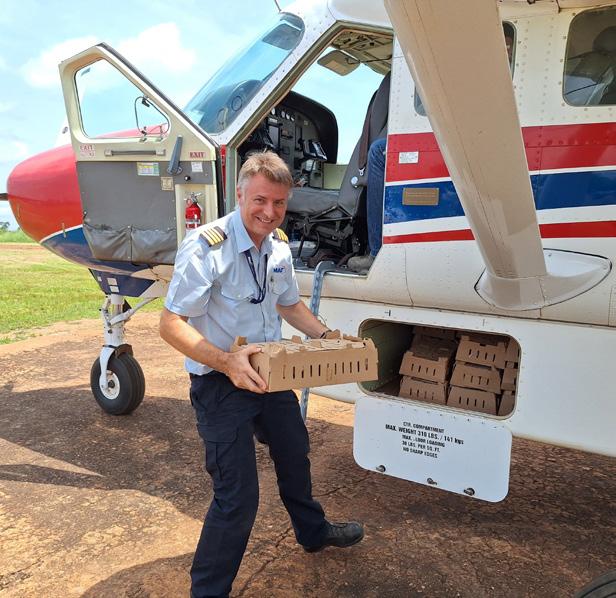



He had warm words for Rev Park as he helped unload the baby chickens, saying, ‘I love Rev Park’s ministry and getting to serve him with our flights. It was a pleasure to fly him!’
A few weeks ago, during a visit to Maridi, MAF’s Flight Operations Project Manager John and Dispatch Team Leader Titus had the pleasure of visiting Rev Park’s farm.
‘It was really well organised, with lots of happy, healthy chickens!’ John recalls.
John learned more about the outreach activities happening on the farm. It not only provides an income for locals but is also a place where they can bring their children to learn about Jesus.
‘Rev Park has trained lots of the locals and given them skills in poultry farming so they can support themselves by raising chickens,’ says Thomas. ‘He is doing a great work discipling some of the local young men so they can do ministry. He also employs many people on his farm. Having a job allows some of his workers to continue studying in school.
‘I really like his approach, providing the kind of practical skills that people lack. He is showing people that there is money in farming if you go about it the right way.’
With the assistance of MAF, a small business flew 15,000 chicks to their farm in Oecusse, where they will be looked after until they are big enough to sell. It took three flights to transport this many baby chickens to Oecusse. On one occasion, bad weather and an urgent medevac flight request meant that the chicks ended up having an unexpected overnight sleep over in MAF’s hangar. But the little chicks coped well with the change in plan once they had food and
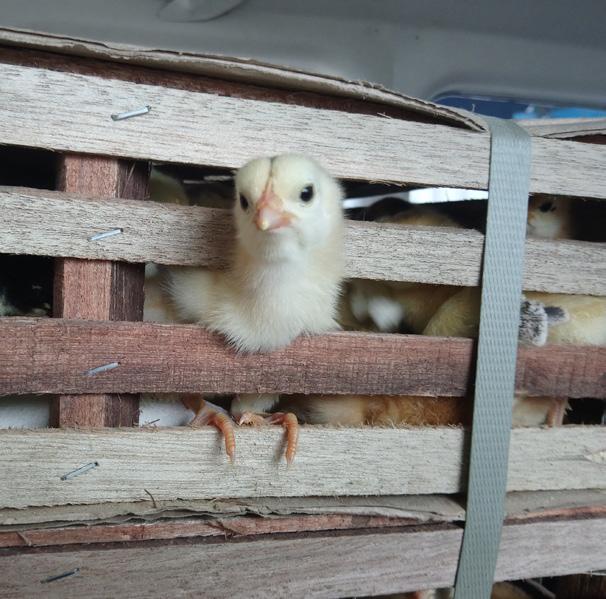
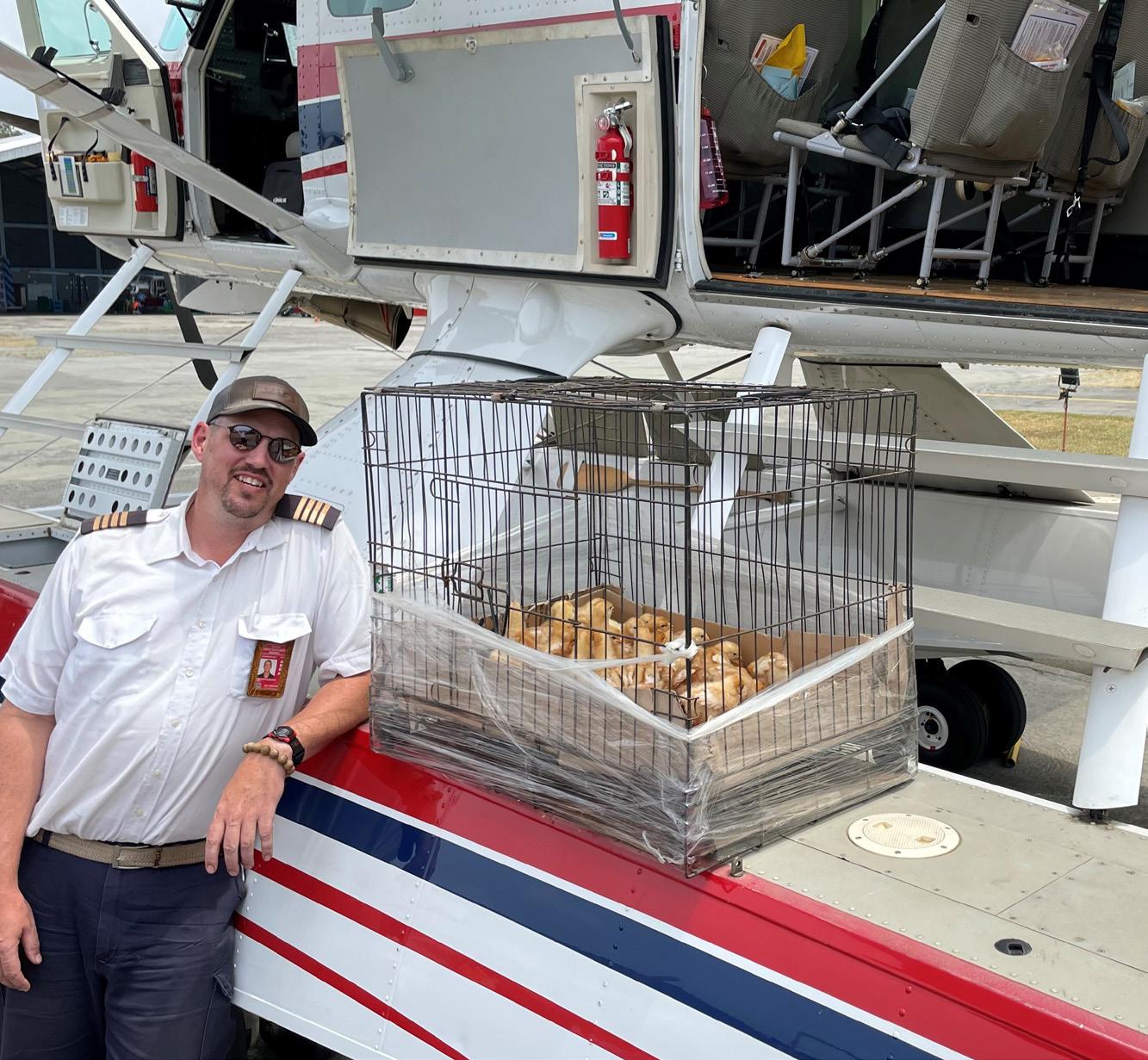
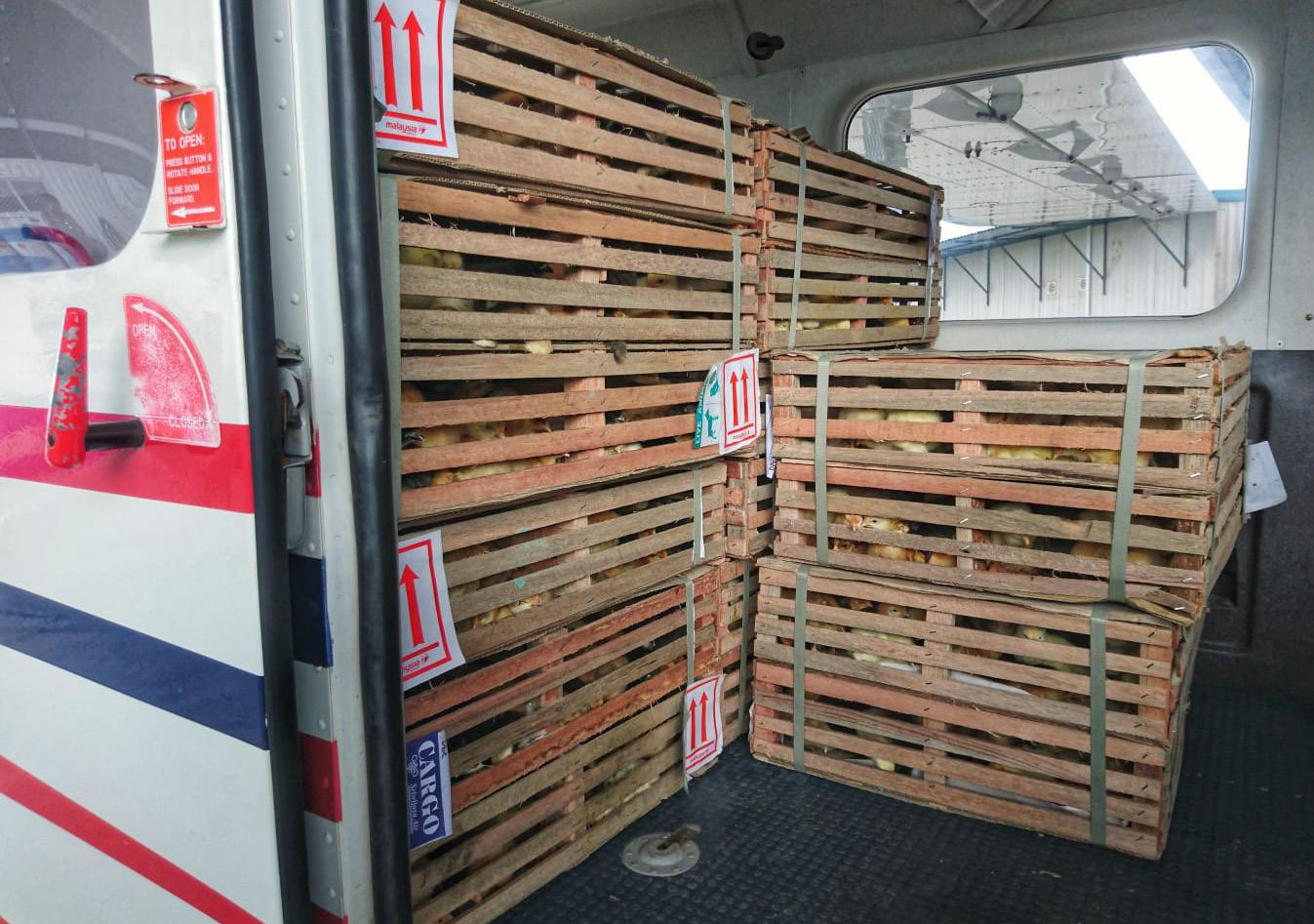
MAF also flew a batch of chicks to missionaries who were returning from furlough and wanted to re-establish their flock there. The cage that houses the chickens in the village must be carefully protected to keep snakes from sneaking through and killing the precious poultry!

